氧化钼对CdTe电池性能影响的理论研究毕业论文
2020-06-17 21:40:33
摘 要
化合物半导体薄膜太阳能电池具有较低的制备成本,较高的转化效率,成为近年来研究的热点。其中,CdTe薄膜太阳能电池以其独特的优势成为光伏市场中重要的电池类型。本论文对CdTe薄膜太阳能电池的发展历史、工作原理、制备工艺等进行了讲述,并讨论了提高电池性能的方法。然后,利用了SCAPS软件模拟计算CdTe电池的性能,研究了MoO3缓冲层和几种重要器件参数对电池性能的影响,其中包括CdTe层和MoO3层厚度、CdTe层掺杂浓度和缺陷浓度、CdTe/MoO3、CdS/CdTe界面态以及ITO功函数对电池性能的影响。通过模拟计算可知,MoO3缓冲层改善了电池性能。当MoO3缓冲层厚度为1nm,CdTe层厚度为1μm,掺杂浓度为1×1013cm-3,缺陷浓度为1×1013cm-3以及ITO功函数为5.1eV时,电池效率达到最佳(27.07%)。此外,CdTe/MoO3、CdS/CdTe界面态也会对电池性能产生一定影响。
关键词:CdTe电池 MoO3 电池性能 模拟计算
Theoretical Study on the Effect of Molybdenum Oxide on the Performance of CdTe solar cells
Abstract
Compound semiconductor thin film solar cell ,with low preparation cost and high conversion efficiency, has become a hot spot in recent years.Among them, CdTe thin film solar cell has become an important PV market battery type with its unique advantages .In this paper, the development history, working principle and preparation process of CdTe thin film solar cells are described, and the method of improving performance of battery is discussed.In addition, we use the SCAPS software to calculate the performance of CdTe solar cells,and the effects of MoO3 buffer layer and several important device parameters on the performance of CdTe solar cells are studied, including the thickness of CdTe and MoO3 layers, the doping concentration and defect concentration of CdTe layer, the interface state of CdTe/MoO3、CdS/CdTe and ITO work function.By simulation,the MoO3 buffer layer improves the battery performance.And when the thickness of MoO3 buffer layer is 1nm, the thickness of CdTe layer is 1μm, the doping concentration is 1×1013cm-3, the defect concentration is 1× 1013cm-3 and the ITO work function is 5.1eV, the battery efficiency is the best (27.07 %).In addition, CdTe/MoO3, CdS/CdTe interface state will also have a certain impact on battery performance.
Key words: CdTe solar cells; MoO3; performance; simulation
目 录
摘要 I
Abstract II
第一章 文献综述 1
1.1引言 1
1.1.1 研究背景 1
1.1.2研究进展及现状 2
1.2 碲化镉电池的结构 2
1.3 碲化镉电池的原理 4
1.3.1 光生伏特效应 4
1.3.2 CdTe电池的性能 5
1.4 碲化镉电池的制备工艺 7
1.4.1 物理气相沉积法(PVD) 7
1.4.2 近空间升华法(CSS) 8
1.4.3 气相传输沉积法 8
1.4.4 溅射法 9
1.4.5 电化学沉积法 9
1.5 碲化镉电池性能的提高方法 10
1.6 选题意义 11
第二章 理论模拟 12
2.1 引言 12
2.2 SCAPS模拟软件 12
2.3 模拟软件原理 14
2.4 模拟步骤 15
2.4.1 电池模型设置及工作点设置 15
2.4.2改变电池各参数进行模拟 15
第三章 模拟计算与分析 16
3.1 器件结构与参数 16
3.2 三氧化钼层厚度 17
3.3 碲化镉层 18
3.3.1 碲化镉层厚度 18
3.3.2 碲化镉层掺杂浓度和缺陷浓度 20
3.4 界面缺陷态密度 21
3.5 ITO功函数 23
第四章 结论与展望 25
4.1 结论 25
4.2 展望 26
参考文献 27
致谢 29
第一章 文献综述
1.1引言
1.1.1 研究背景
相关图片展示:
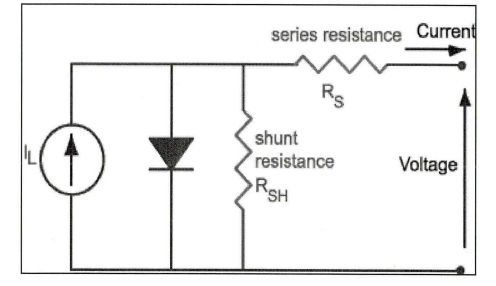
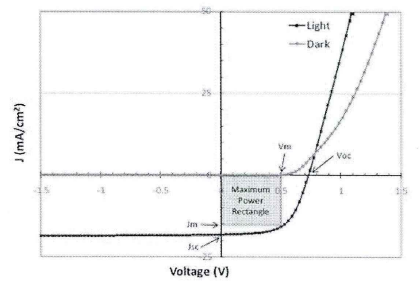
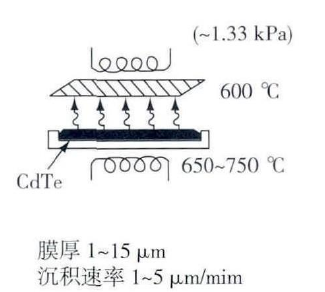
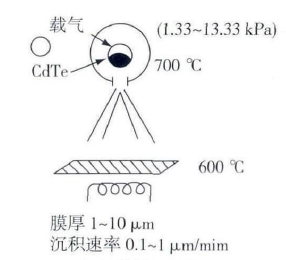
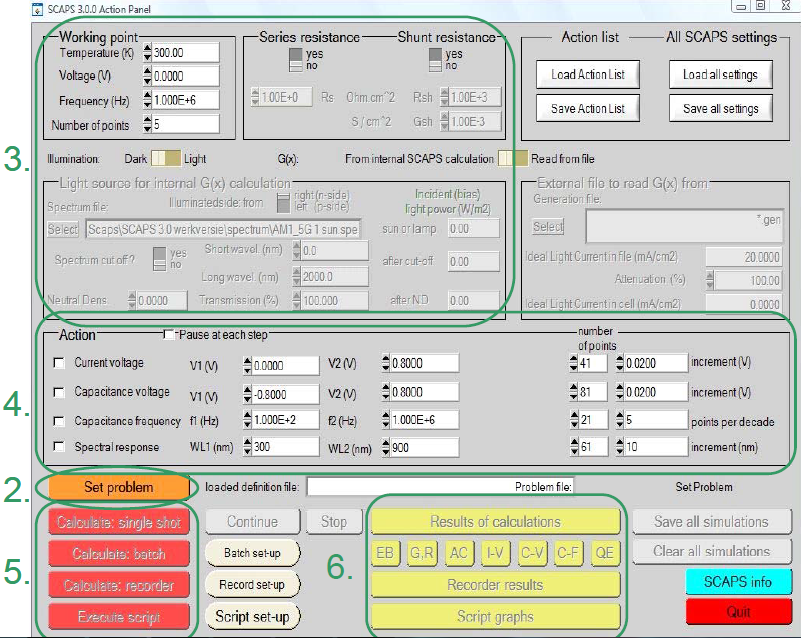
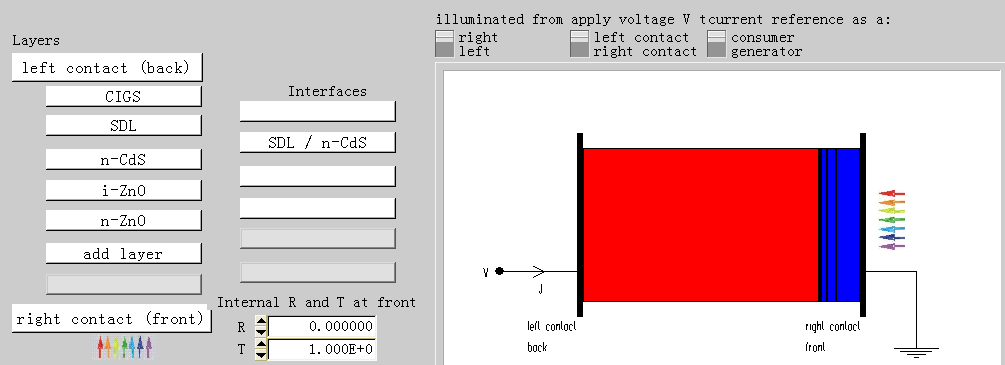
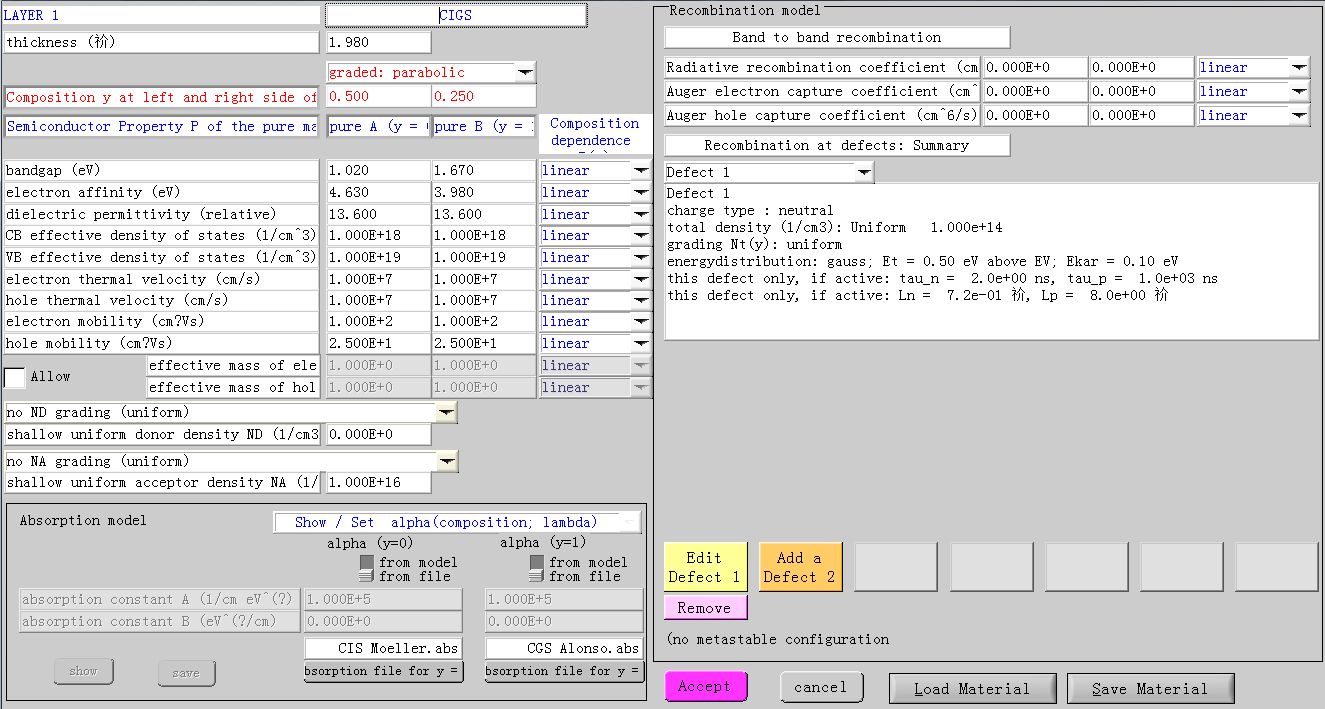
课题毕业论文、开题报告、任务书、外文翻译、程序设计、图纸设计等资料可联系客服协助查找。



